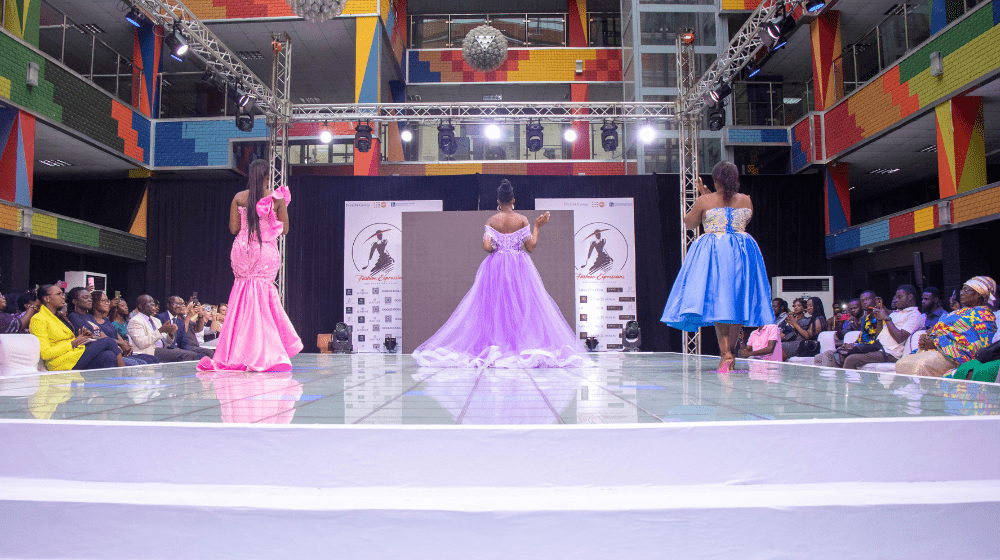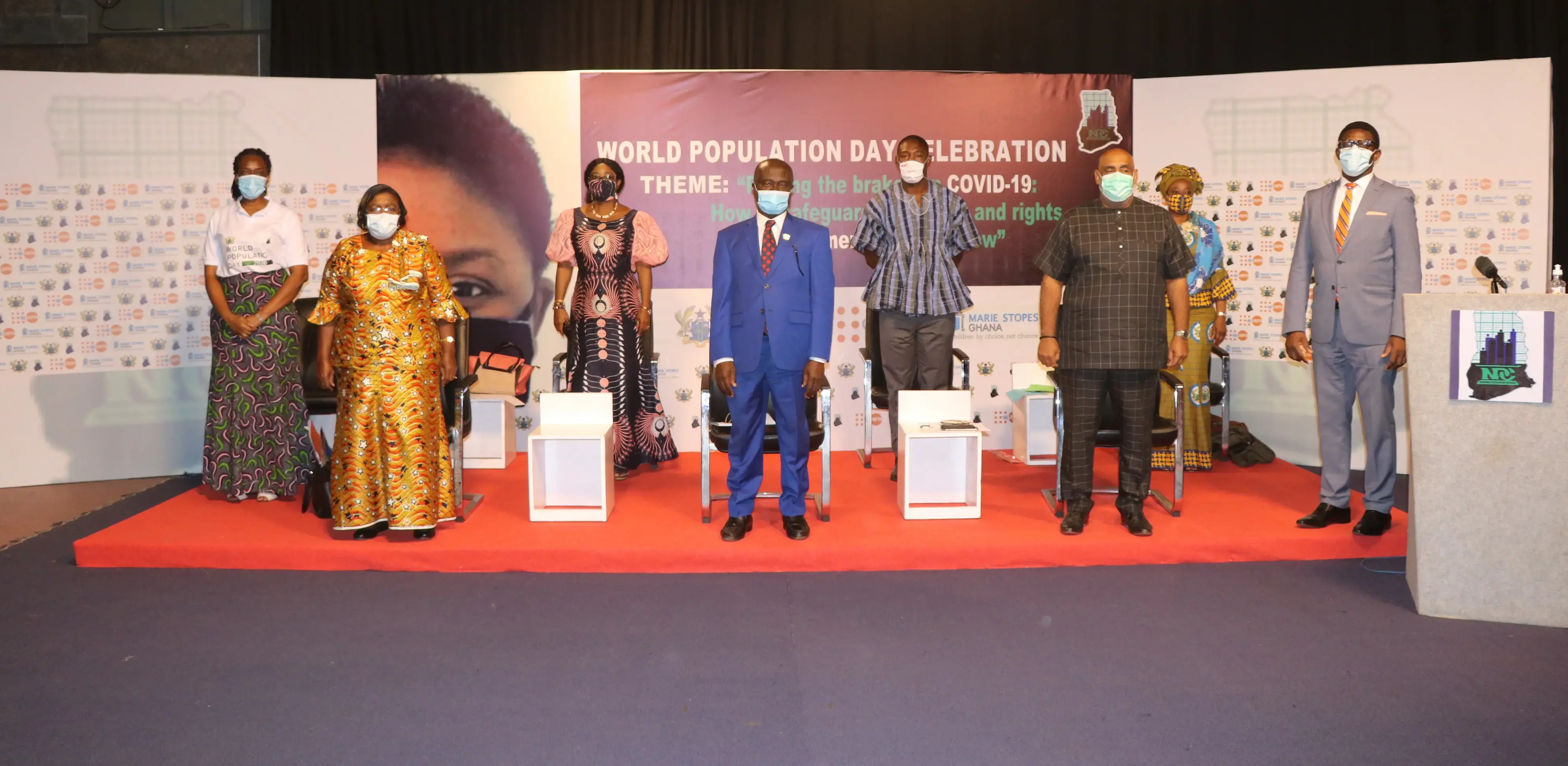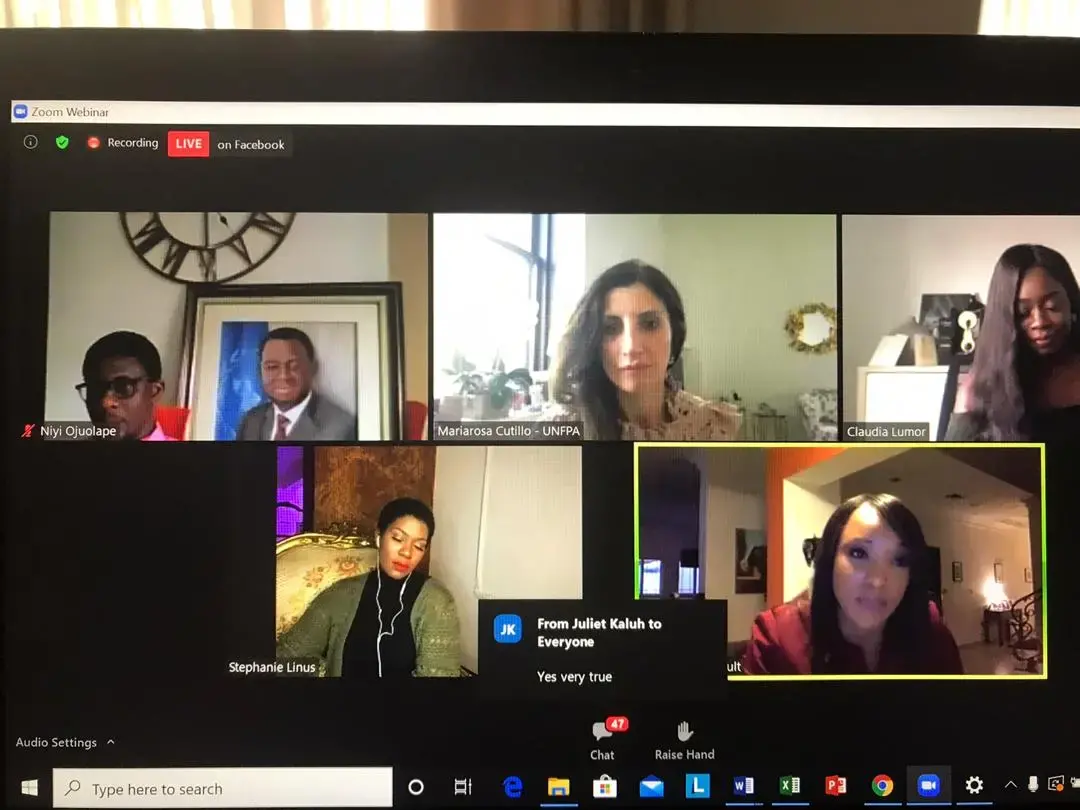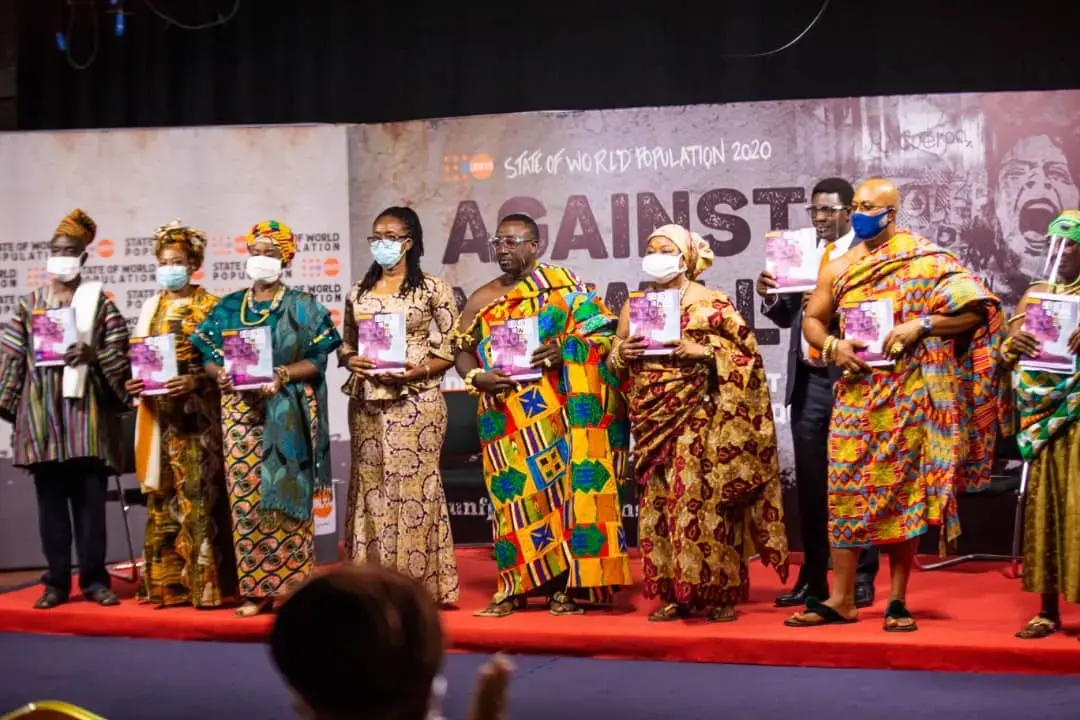In Ghana and Kenya, the futures of young girls living in poverty are changed by an unexpected fairy godmother: fashion. The Fashion Expressions: the Stories she Wears program was created by UNFPA and Prada Group. It allows vulnerable young women with few prospects and a high likelihood of past and future victimization to get trained, learn a skill and through it the ability both to sustain themselves and to express their full potential. We went to Ghana to meet three of these girls and figure out on the ground how fashion actually does change lives.
In the sweltering heat of an overcast day in Accra, walking up the steps to the atelier of the famous Ghanaian brand Poqua Poqu, we are met with young trainee Pamela Afatsawo, who welcomes us with her shy smile and open demeanour. She is wearing a beautiful flowy dress that she made herself, elegant kitten heels and a long, soft bob. As she models her designs for her first-ever international fashion shoot, she explains: “This has been life-changing for me. Look at me, at my background. There was no hope, no ambition. I lost my mother just as I finished school, in 2018. After that, there was no one to support me, even though I’d always been passionate about fashion. That’s why finding the Fashion Expressions project was such a life-changing experience.” As Chief of the Strategic Partnership Branch UNFPA Mariarosa Cutilo explains: “We wanted to design a program that would bring together UNFPA’s mandate – reproductive health among vulnerable populations – and Prada Group’s leadership in fashion. To empower vulnerable women and girls through fashion.” The Poqua Poqu workshop is in a wide room, filled with sewing and cutting stations, and colourful, intricate clothing hanging along the walls. It is a celebrated, women-led fashion house. Tragically, founder and head designer Pokua Poku-Mouhtiseb had recently died in childbirth, leaving Pamela to mourn another maternal figure in her life. Like many countries in the region, Ghana suffers from the effects of brain drain, and the emigration of qualified medical personnel like midwives to Europe or America, which means that even successful, independent women like Pokua can fall victim to a depleted medical system. She was very loved by all her team, and there is a sadness under the excitement of the day. As her husband Rida explains, “Pokua was a beautiful soul. She always believed in herself as a woman, she wanted to lift up young women to make sure that they have a skill to put food on the table for their families.”
This is the rationale behind the Fashion Expressions program. Emmily Naphambo, Deputy Representative of the UNFPA Ghana Country Office adds context: “Our mandate is no one left behind. But these girls are the ones you don’t think about. They’re so vulnerable. Sometimes, they’ve lost their parents, sometimes they’ve become teenage mothers, and usually, they are victims of various kinds of abuse. Most of them migrate from the rural parts of Ghana and come to Accra, the big city, to find opportunities and work. And they find themselves in very difficult spaces, on the street, in the markets, trying to earn a living.” She shows on a map: “The north region of Ghana, close to the border with Burkina Faso, is the poorest part of the country. It’s also where the effects of climate change are most felt: no more water, farming becomes difficult, or on the contrary there’s summer flooding. The north is also where you have a lot of polygamy. If a girl is the fourth wife, the man doesn’t necessarily have the resources to feed her children. So it’s up to her to find alternative ways of providing for her kids.” She tells us about the buses filled with these girls, driving along the long road from North to South, looking for opportunities. Their openness and the fact that they travel alone mark them as prime targets for traffickers. And even when they do reach the city, if they don’t know someone or don’t have a place to land, their situation can quickly turn dark and seemingly hopeless. Emmily Naphambo confirms: “For the women who don’t have agency, who are not empowered, the likelihood of them being subjected to gender-based violence is extremely high.”
This is where International Needs Ghana (INGH) comes in, as an implementing partner providing support to the partnership between Prada Group and UNFPA. Executive Director Cromwell Awadey explains how their original purpose, which was to “to end child marriage by giving young women and adolescent women a choice,” turned to education as a means to emancipation. “Poverty creates issues of exploitation for the girls. They drop out of school, sometimes just because of period poverty. For many families, if a girl is married or leaves somehow, it’s one less mouth to feed. But the boy, you will push to go to school, thinking that it will be more productive. Which is not proven to be true, actually.” INGH opened a training facility in the Volta region so that young women who have experienced this abandonment can finish their schooling and learn a trade. The Fashion Expressions program starts there: six months spent learning all the steps of the fashion trade – sewing, cutting, sketching, designing… At the end of the program, the students held a graduation fashion show, where they showcased their brand-new skills and their craziest, most beautiful ideas. Cromwell Awadey reminisces: “You know, we all believed in their excellence. But the girls surprised every one of us. They made us proud. There are so many talents wasted because of a lack of opportunities. They just need someone to help them. There is a real need for empowerment.” Emmily Naphambo expands: “When they graduate from the program, the girls are so different from the girls you meet when you start this project.” When asked whether Prada Group’s involvement was a draw for these impoverished yet fashion-conscious girls, she answered that Ghana’s fashion culture is very local, people there have their own sense of style and designers like Poqua Poqu are celebrities in their own right. However, when it came to the post-graduate part of the program, finding internships for these girls in established fashion houses, that’s when the name Prada opened doors. Emmily Naphambo enthuses, a huge smile on her face: “The houses who are able to offer the internships, they know Prada. So when we approached them, their reaction was: ‘Oh my goodness, if Prada believes in these girls, why not us Ghanaians?’ It opened their eyes. When I met Pokua, she told me that she was impressed that Prada Group came here to build the capacity of the girls. And if Prada is doing it, why shouldn’t she do it? The project ignited a desire in Ghanaian fashion brands to do more for the girl child here, in their own country.”
Read the rest of the story here: https://www.marieclaire.co.uk/fashion/new-horizon-changing-lives-throug…
Source: Marie Claire





